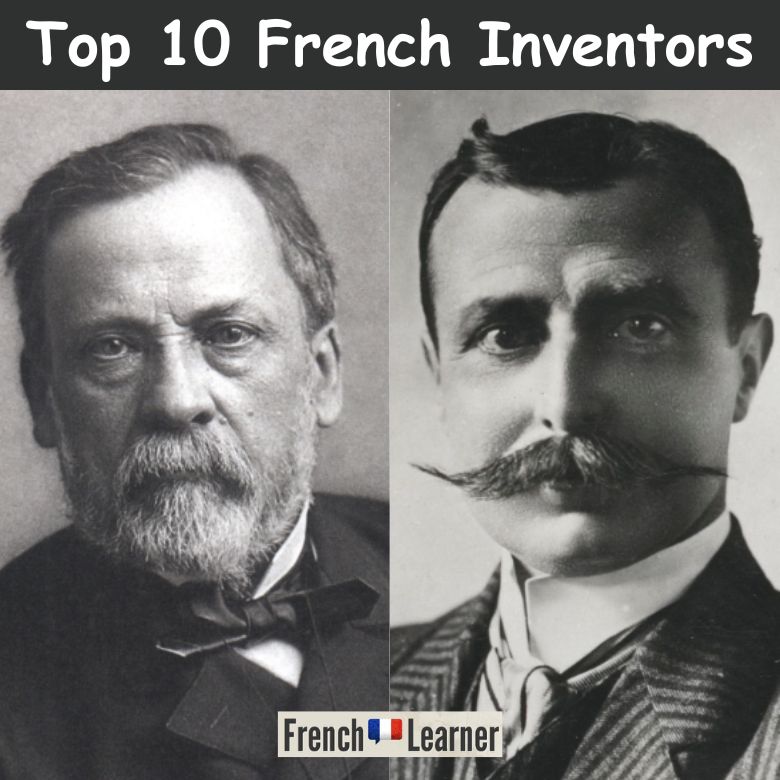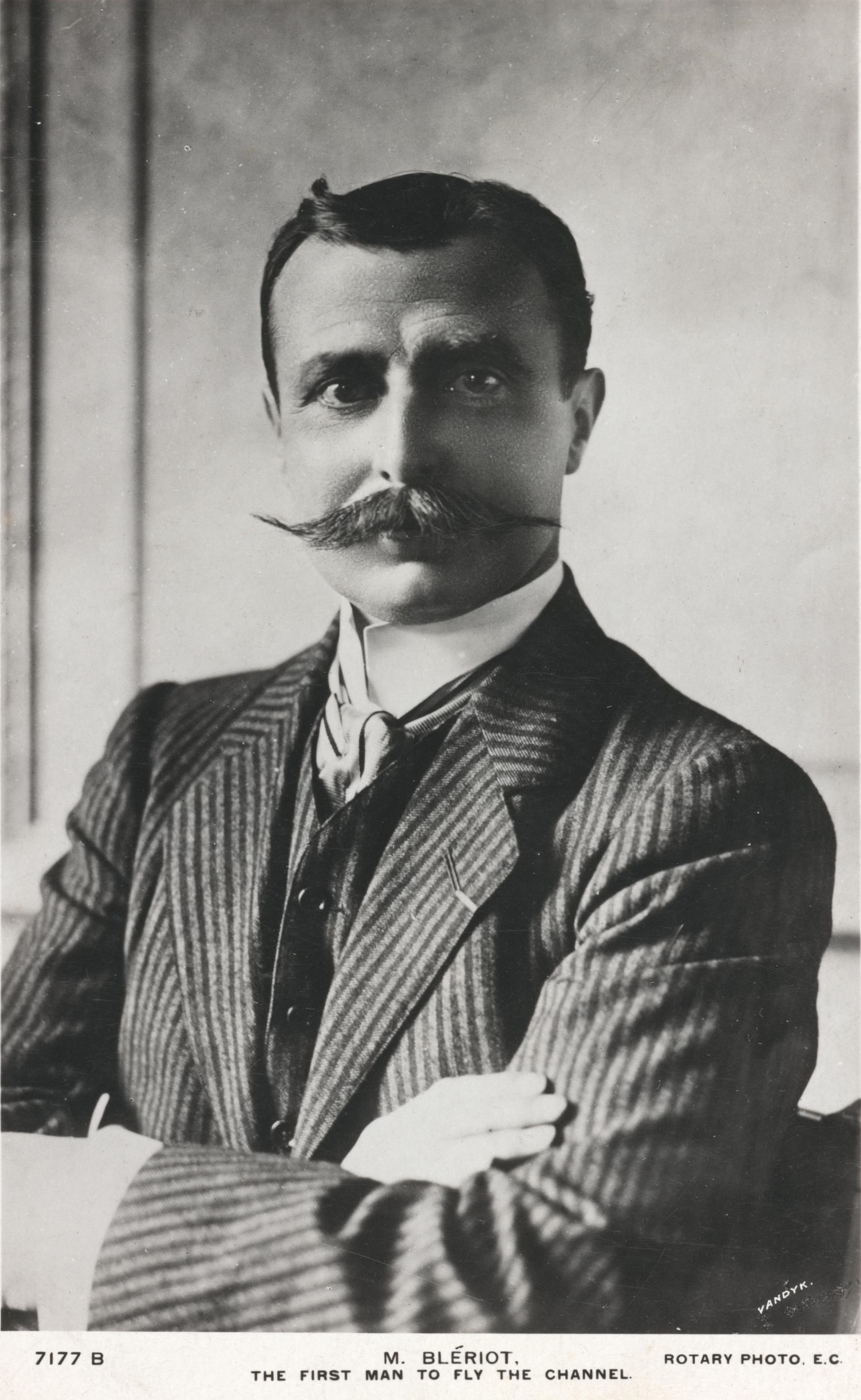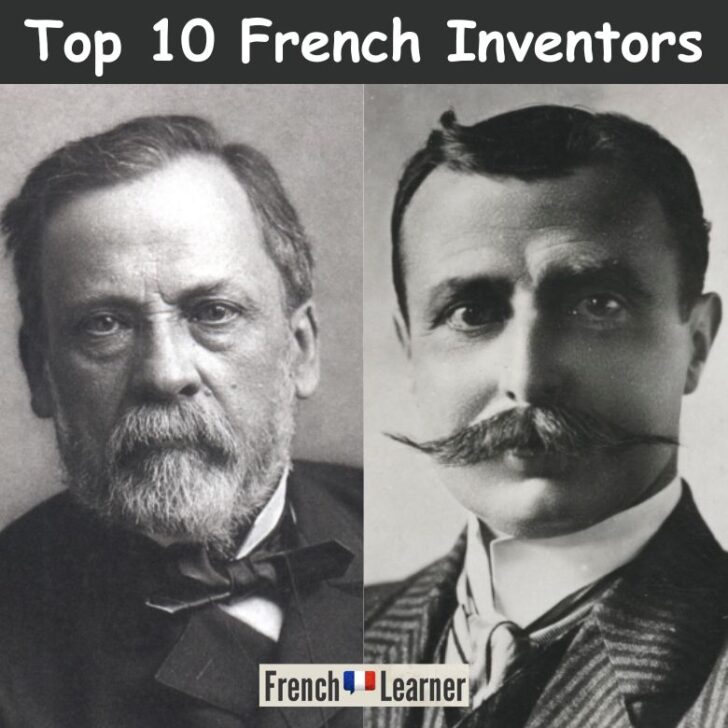France has gifted the world countless inventions and discoveries we take for granted. From advances in transport, medicine, and many other fields, centuries of scientific ingenuity have produced remarkable French inventors who helped make the future a little brighter. Here are 10 who deserve all their fame.

List of the top 10 famous French inventors
- Blaise Pascal (1623 – 1662)
- Denis Papin (1647 – 1713)
- Nicolas-Joseph Cugnot (1725 – 1804)
- Nicolas Appert (1749 – 1841)
- Nicéphore Niépce (1765 – 1833)
- René Laennec (1781 – 1826)
- Louis Braille (1809 – 1852)
- Louis Pasteur (1822 – 1895)
- Louis and August Lumière
- Louis Blériot (1872 – 1936)
Blaise Pascal (1623 – 1662)
Invented: The Digital Calculator

Blaise Pascal was a child prodigy who excelled in anything he turned his mind to. Mathematics was his first calling, and he used his genius to help his father, a tax collector in Clermont-Ferrand.
Pascal’s digital calculator was a game-changer, making a laborious job less taxing. For his father, anyway.
Known as a Pascaline, the mechanical marvel was intricate and extremely expensive. Only 20 machines were sold; nine are displayed in European museums today.
Pascal’s brilliance extended to mathematical theories (Pascal’s theorem and Pascal’s Triangle). Pascal’s Law on the transmission of fluids enabled him to make a functioning syringe and early hydraulic press.
Not content with collecting laws and principles in his name, he also opined on philosophy and religion. He is perhaps best known for Pascal’s Wager, the pragmatic view that regardless of proof, you have nothing to gain and everything to lose by living your life as if God does exist.
Aside from the headline achievements, many lesser advances built on Pascal’s scientific, philosophical, and mathematical mastery. Impressive work for a man plagued by sickness who wouldn’t live to see his 40th birthday.
Denis Papin (1647 – 1713)
Invented: The Steam Digester (forerunner to the pressure cooker and steam engine)

Next time you fire up your Instant Pot, you can thank physicist and mathematician Denis Papin that your melt-in-the-mouth dinner didn’t explode all over your kitchen. The prototype pressure cooker he assembled in the late 17th century came with a steam-release valve, solving this rather unwelcome flaw.
The design principles of his enigmatically named Steam Digester are still found in modern pressure cookers. He also applied the principles to steam power designs, paving the way for engineers to build the first piston-driven steam engines a few years after his death.
Nicolas-Joseph Cugnot (1725 – 1804)
Invented: The first automobile
Nicolas-Joseph Cugnot took Denis Papin’s vision for a steam engine and made it a reality with a self-propelled vehicle, creating the world’s first automobile in 1769.
The Fardier à vapeur (steam trolley) doesn’t get the same credit as Karl Benz, who built the first gasoline-powered car.
But Cugnot’s pioneering ratchet design put the automobile on the road by converting piston power into forward motion.
Other French inventors and industrialists like Edouard Michelin would help transform motor transportation in later years.
But his clunky three-wheeled tractor, which hit a top speed of 2.5 mph and was first used by the French military, was one of the first significant steps towards making the world a smaller place.
Nicolas Appert (1749 – 1841)
Invented: Food canning (AKA appertization)

An army marches on its stomach, and Nicolas Appert’s food preservation innovations were pivotal in the Napoleonic Wars.
The science behind bacteria would come later with another famous French inventor, Louis Pasteur. Drawing on experience as a confectioner, through trial and error, Appert discovered that food did not spoil when preserved in a vacuum.
His technique was to seal food in glass jars with a cork and then boil it in water. Financed by the French army, he opened a bottling factory in 1804, producing food for grateful sailors and soldiers tired of salted and dried rations.
An Englishman, Peter Durand, later advanced the idea of using tin cans. The rest is history.
Amazingly, the inventor turned entrepreneur died penniless, buried in a pauper’s grave despite changing food production forever.
Nicéphore Niépce (1765 – 1833)
Invented: The first photographic camera
It might be low on pixels, but Nicéphore Niépce produced the world’s oldest surviving photographic print, View from the Window at Le Gras.
His breakthrough in heliography used a wooden box camera to capture the revolutionary image in 1826.
His protégé and fellow French inventor, Louis Daguerre, would continue his work and build the Daguerreotype, the camera behind many images frozen in time from the 1840s and 1850s.
Yet every photographer owes a debt to Nicéphore Niépce, who showed the world what was possible.
René Laennec (1781 – 1826)
Invented: The stethoscope

A physician and musician, René Laennec went from carving flutes to carving his name as one of the great French inventors when he invented the stethoscope in 1816.
Inspired by a child’s toy using a hollow stick to listen to the sound of a pin being scratched, his unique knowledge of medicine and musical instruments combined for a eureka moment.
Auscultation (listening to a body’s internal sounds) was previously done by placing an ear on the chest. It was embarrassing for women and far less effective, especially with overweight patients.
While Laennec’s wooden tube underwent many design changes to become the accessory no doctor would be seen without, the underlying concept was entirely his brainwave.
Louis Braille (1809 – 1852)
Invented: Braille

Blinded in an accident at three years old, Louis Braille resolved to make life better for the visually impaired. In 1824, he revealed a tactile writing system he had developed as a child.
He wasn’t the first to conceive of such a system (that honor goes to another French inventor, Charles Barbier). However, the Braille system was far more efficient, opening a world of possibilities for the visually impaired just as the written word became accessible to all.
Louis Pasteur (1822 – 1895)
Invented: Pasteurization and vaccines for rabies, cholera, and anthrax

Louis Pasteur, the father of bacteriology, is undoubtedly the most renowned French inventor and ranks among the most famous French people.
Pasteur’s trailblazing work as a chemist and microbiologist has saved millions from death and illness. His research into germ theory discovered that gently heating wine killed unwanted enzymes without destroying taste or quality.
Dairy farmers rejoiced as the technique also worked with milk and other dairy products, earning Pasteur extra brownie points in fromage-loving France.
The process he is best known for bears his name. But Pasteur also made immense progress with germ theory, expanding on Edward Jenner’s work on vaccinations to create effective inoculations for multiple infectious diseases, turning a niche discipline into a foundation of modern medicine.
Louis and August Lumière (1862 – 1954) / (1864 – 1948)
Invention: The Cinématographe

Cinema was born with the Lumière brothers. Perhaps it was destiny to see their name in lights. After all, they weren’t the only international or French inventors creating moving pictures. But their signature device, the Cinématographe, beat them all and projected the first motion pictures to an astonished Parisian audience in 1895.
Its popularity exploded, and the Lumière brothers made 1,400+ short films, birthing cinema and instantly creating a global appetite for French movies.
Louis Blériot (1872 – 1936)
Invention: Car headlamps and the monoplane

We can only choose 10 famous French inventors, so we’ll close with the visionary Louis Blériot.
Blériot invented the first practical headlamp for automobiles, selling them publicly in 1897. Parlaying new-found wealth into his passion for aviation, he built the world’s first powered monoplane, successfully piloting it across the English Channel in 1909.
His exploits earned global fame, and he was hailed as a hero in France, receiving full military honors at his funeral. While the Louis Blériot medal is still awarded to adventurers setting speed and distance records in light aircraft today.
We say au revoir to the French inventors. To uncover more brilliant minds, our guide to influential French philosophers shines a light on more geniuses who reshaped the world.

